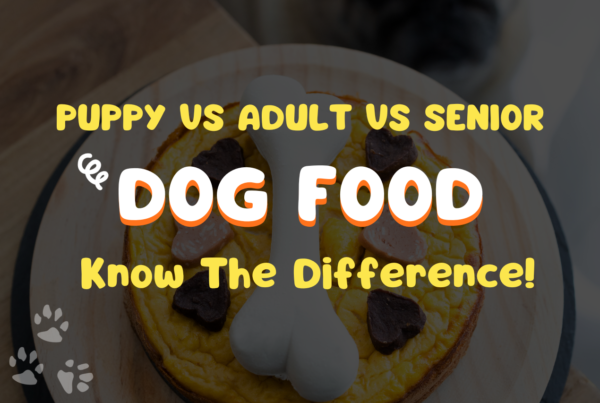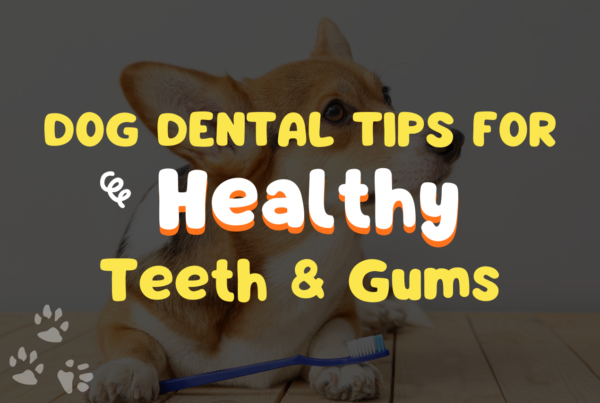
Why Pets Are Essential For Mental Well-being: Uncovering the Therapeutic Benefits & Emotional Support Pets Provide in Our Lives
Mental well-being is crucial, especially in today’s demanding world. It impacts our day-to-day lives, our decisions, and our interactions. While many things contribute to our mental health, one positive and often overlooked influence is the role of pets.
They offer companionship, routine, and moments of joy, all of which can have significant benefits for our mental state. In this article, we’ll explore the relationship between pets and mental health and discuss why our furry, feathered, or scaled friends are vital for our emotional equilibrium.
Historical Context
Dive into any period of human history, and you’ll find a bond between us and our animal companions. In ancient Egypt, cats were more than just pets; they were symbols of grace and protection. They sat on laps, but also had statues in their honor.
Jumping ahead to medieval Europe, horses played a critical role. Knights depended on them not just for battle, but also for companionship during long journeys. Those rides could be isolating, and the bond between a knight and his steed was paramount for both survival and comfort.
Then there were the Native American tribes. For them, animals were like family. They saw wisdom in animal behaviors and often used them as symbols in their stories.
From ancient tales to more modern anecdotes, it’s clear: wherever you find humans, you’ll likely find their animal companions close by. This historical connection hints at something more profound than mere coexistence. It underscores the role pets have always played in grounding us and supporting our mental well-being.
The Science Behind The Bond
Let’s get a bit scientific. Ever felt that warm, fuzzy feeling when you pet a dog or hear a cat purring? It’s not just in your head; there’s science backing that sensation.
First up, let’s talk about a lovely hormone called oxytocin. This isn’t just any ordinary hormone; it’s often dubbed the “love” or “bonding” hormone. Every time you interact with your pet – be it a hug, a stroke, or even just making eye contact – there’s a surge of oxytocin in your body. And guess what? The same happens in your pet’s brain. It’s a mutual feel-good moment. This release of oxytocin is why pets can instantly make us feel calmer and more connected.
But that’s not all. Ever heard of cortisol? It’s the body’s main stress hormone. While necessary in certain situations, chronic high levels aren’t exactly a picnic for our well-being. Here’s where our furry friends come in again. Multiple studies have shown that pet owners, especially those with dogs, often have lower cortisol levels. Just the act of spending time with a pet can reduce stress, making daily challenges a tad easier to handle.
And, to wrap up our brief science lesson, let’s touch on brain chemistry and mood regulation. Interaction with pets stimulates regions of the brain associated with happiness, bonding, and security. This not only gives us immediate pleasure but, over time, can assist in better mood regulation. For those facing mood disorders or periods of sadness, this effect is even more pronounced.
In truth, our bond with pets isn’t just about companionship or history; it’s wired into our biology. Through hormones like oxytocin and reductions in cortisol, these animals shape our mental landscape in profound ways.
Emotional Benefits
Let’s delve into the heart of the matter, quite literally, by discussing the profound emotional benefits pets bring into our lives.
Starting with the big one: unconditional love. Ever had a rough day, only to find solace in the eager eyes of your pet awaiting you at the door? That’s the power of non-judgmental companionship. Pets don’t care if you were late to a meeting, forgot an assignment, or even if you’re in your pajamas all day. Their love isn’t based on conditions or achievements. It’s pure, simple, and unwavering.
Then there’s the immense role pets play in staving off feelings of loneliness and isolation. In today’s digital age, where physical interaction sometimes takes a backseat, pets bridge the gap. They offer consistent, real-world interaction. For someone living alone or someone who’s been through a tough period, having a pet around can make a home feel less empty and the world a bit brighter.
Lastly, let’s touch upon responsibility and purpose. Having a pet is not just about cuddles and playtime; it’s a commitment. This sense of responsibility, whether it’s feeding them, taking them for walks, or regular vet visits, can instill a sense of purpose in individuals. For many, it provides a routine, a reason to wake up in the morning, and a motivation to stay active and engaged.
Social Benefits
Stepping into the social arena, pets offer a delightful surprise. They’re not just companions for us at home; they can play a pivotal role in how we interact with the world around us.
Consider the simple act of walking a dog. How many times have you, or someone you know, struck up a conversation with a stranger because of a pet? Dogs especially, with their playful nature and approachability, often serve as icebreakers. Suddenly, you find yourself discussing breeds, sharing stories, or setting up playdates. Before you know it, your circle of acquaintances expands, all thanks to your four-legged friend.
Now, let’s touch upon the sense of community among pet owners. Visit any dog park, pet cafe, or even an online forum dedicated to pet enthusiasts, and you’ll immediately sense a camaraderie. Sharing tips, exchanging experiences, or simply gushing over the latest pet antics – these spaces become a hub of interaction, fostering a sense of belonging.
Lastly, pets can be profound teachers. They teach us patience, empathy, and communication. Interacting with pets can help improve human relationships and hone our social skills. For children, pets can be an introduction to understanding non-verbal cues, while for adults, they can serve as a reminder of the importance of patience and understanding in relationships.
Indeed, our pets play a pivotal role in linking us to our inner selves and the broader world. Through these companions, we discover new friendships, become part of vibrant communities, and enhance our interpersonal skills. They truly offer a bridge to richer, more genuine social interactions.
Physical Benefits That Complement Mental Well-being
Now, while we’ve delved deep into the mental and social perks of having pets, let’s not overlook the tangible physical benefits they bring, which in turn, bolster our mental well-being.
First and foremost, our pets, especially dogs, love their fair share of outdoor activities. For many of us, the morning or evening ritual of walking the dog becomes a vital part of our daily routine. It’s not just about letting them out; it’s also a means of exercise for us. Regular walks mean better cardiovascular health, improved stamina, and, of course, the added benefit of soaking in some Vitamin D. And, as we all know, a healthy body is a strong pillar for a healthy mind.
Now, let’s tie this physical activity back to mental health. Engaging in regular physical activities, like playtime with pets or even a brisk walk around the block, can do wonders for our mood. The reason? Exercise leads to the release of endorphins, our body’s natural mood lifters. So, when we talk about decreased levels of anxiety and depression among pet owners, this interplay between physical activity and endorphin release is a significant factor.
Then there’s a certain rhythm and tranquility in petting an animal. The repetitive motion of brushing a cat’s fur or the gentle heartbeat when you cuddle a puppy close – these acts are inherently calming. Several studies suggest that these interactions can lead to reduced blood pressure, slower heart rate, and a general sense of calm.
Drawing from these insights, it’s clear how much pets bring to our lives. heir presence nudges us to be active, keeps our heart rates in check, and offers moments of serene bonding. This trio of physical benefits, in turn, lays a strong foundation for our mental equilibrium and well-being.
Making An Informed Choice: Pets And Personal Circumstances
While we’ve explored many positives pets offer, it’s equally essential to approach the subject with balanced eyes. Pets, despite their undeniable advantages, aren’t a one-size-fits-all solution.
Firstly, pet ownership isn’t for everyone. Just as some people prefer solitude over company, or the mountains over the beach, not everyone might find comfort or joy in having a pet. And that’s perfectly okay. The key is self-awareness and understanding one’s own needs and capabilities.
With pets come responsibilities. It’s not all about fun and games. There’s feeding, grooming, regular vet visits, and addressing their emotional needs. For some, these responsibilities might become overwhelming, potentially leading to stress or anxiety. It’s crucial to evaluate whether you can genuinely dedicate the time and resources pets require before taking the leap.
Lastly, every pet, just like people, has its own personality. A lively dog might not suit someone with a quieter lifestyle, while a reserved cat might not meet the needs of someone seeking an active companion. It’s essential to know and consider the distinct needs and personalities of pets to find the best match for your lifestyle.
Final Thoughts
As we’ve journeyed through the intricate bond between humans and pets, it’s clear these companions hold a special corner in our lives. They’re not just animals we care for; they’re anchors in our day-to-day whirlwind, offering a slice of solace and joy. Even if you’ve never had a pet or don’t plan to get one, it’s worth pausing and appreciating the silent symphony they create in the lives of those around us.
Maybe, just maybe, the next time you see a friend’s cat curled up on a windowsill or a neighbor walking their dog, you’ll see beyond the fur and paws. You’ll glimpse the harmony, comfort, and mutual love they infuse into our world. And if you ever feel the nudge to explore this bond yourself, remember it’s a journey, not a destination. One filled with laughter, some challenges, but above all, immeasurable warmth.






